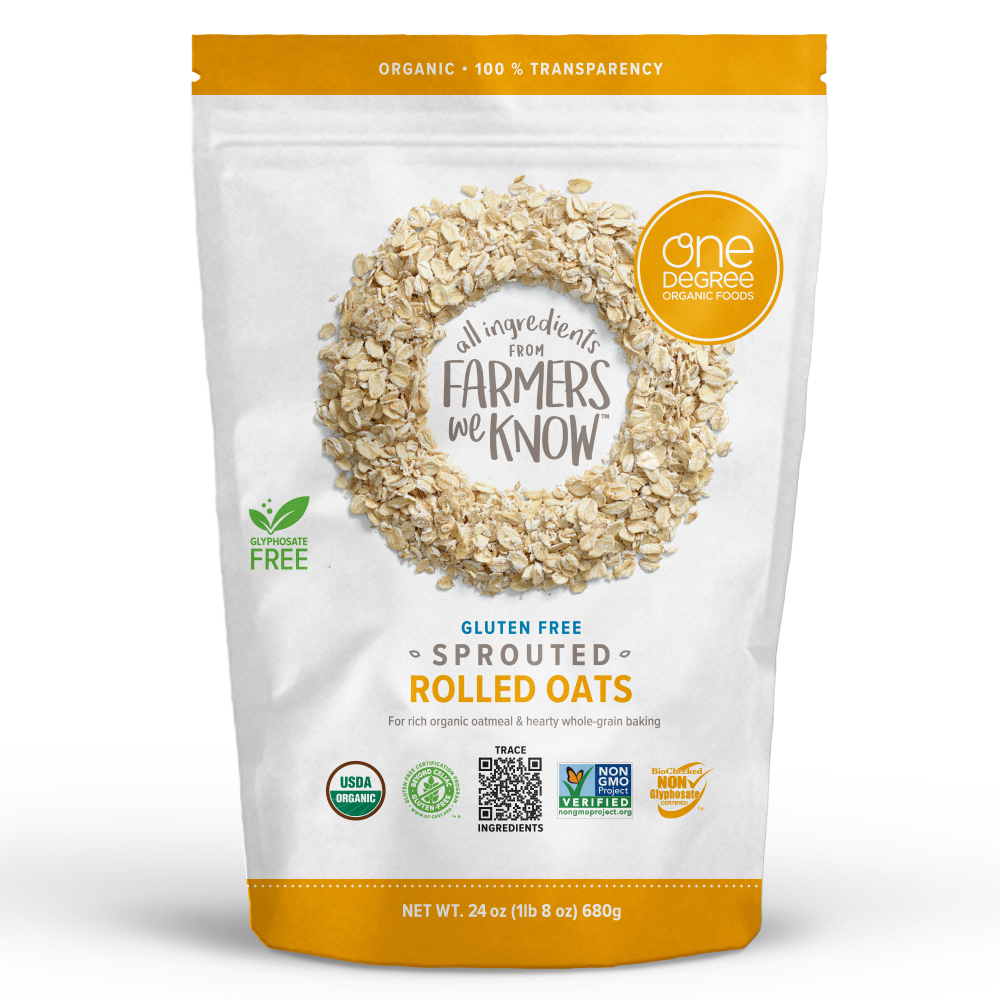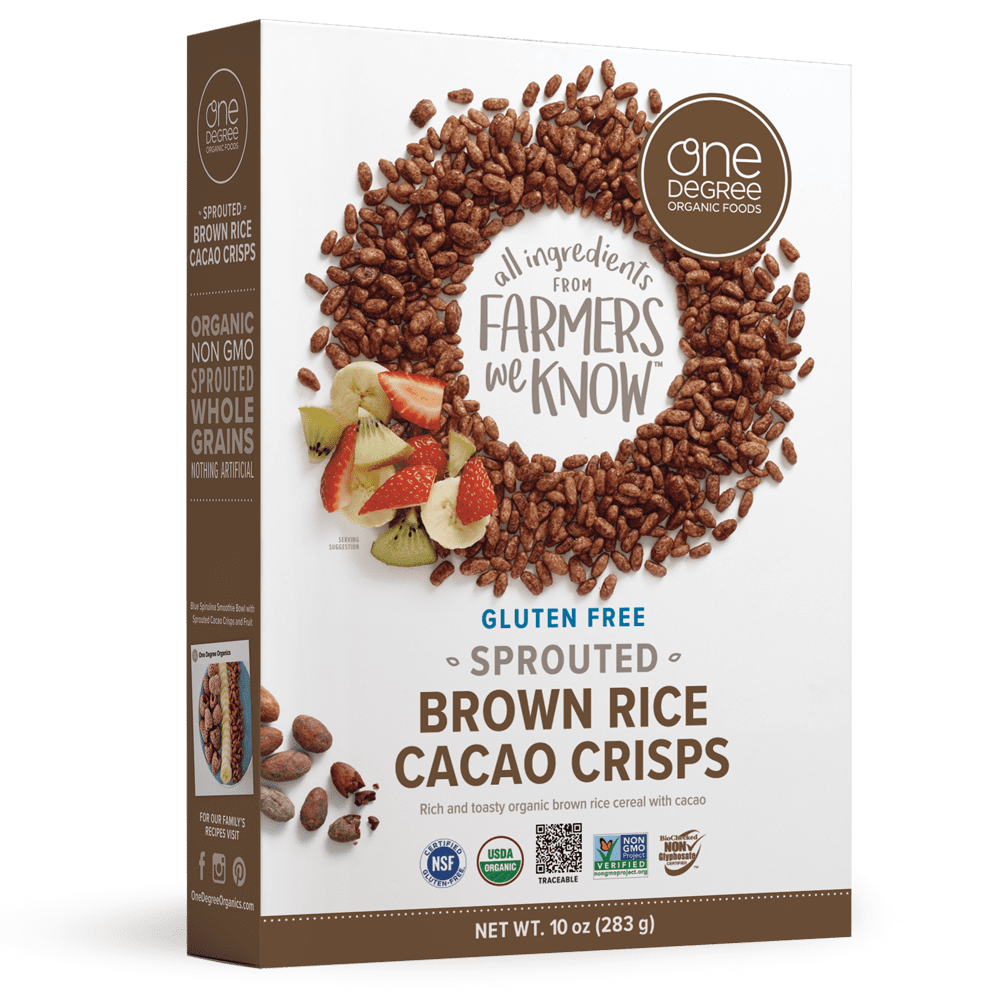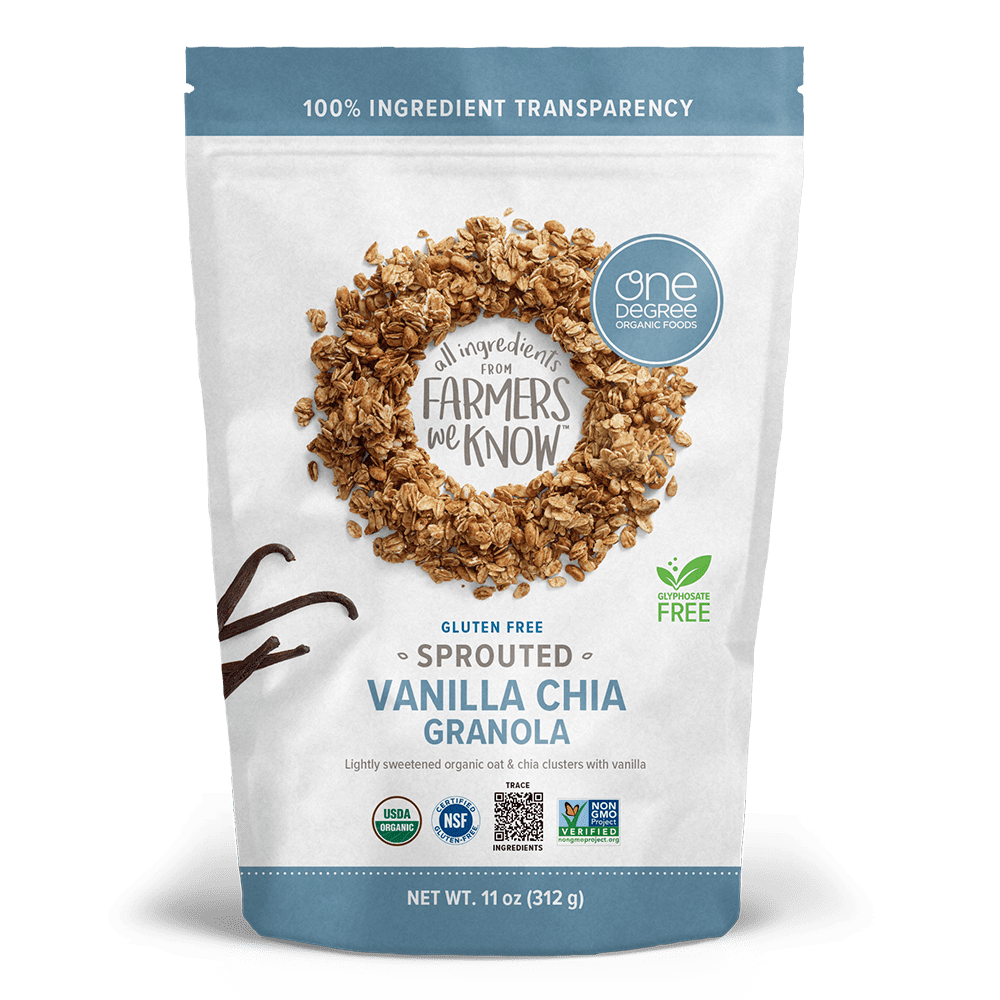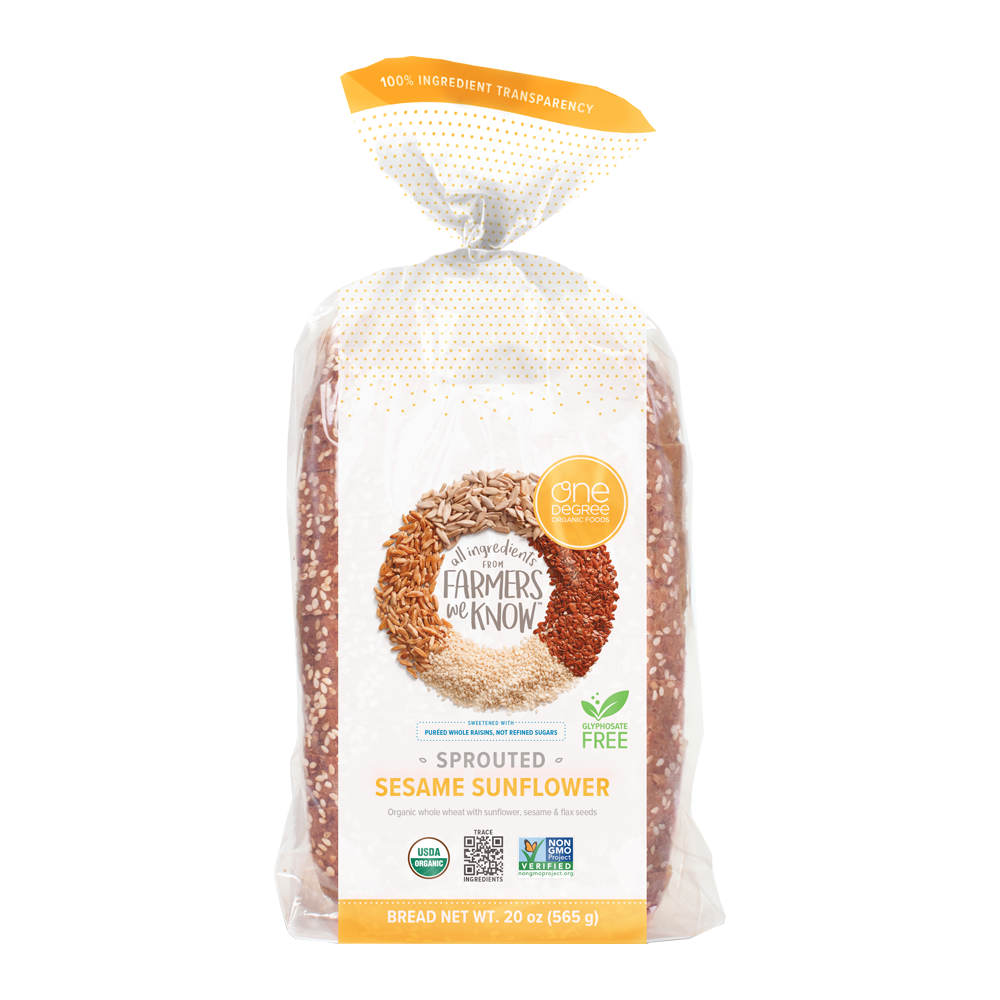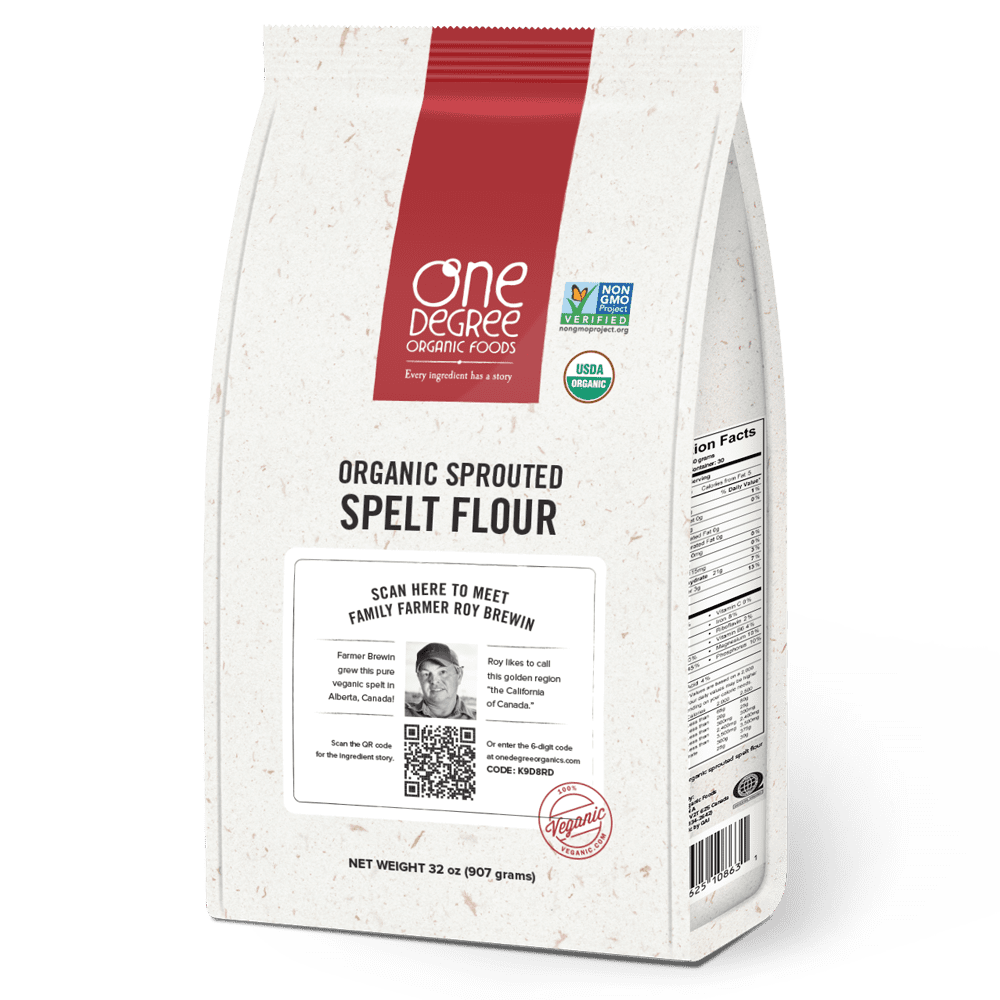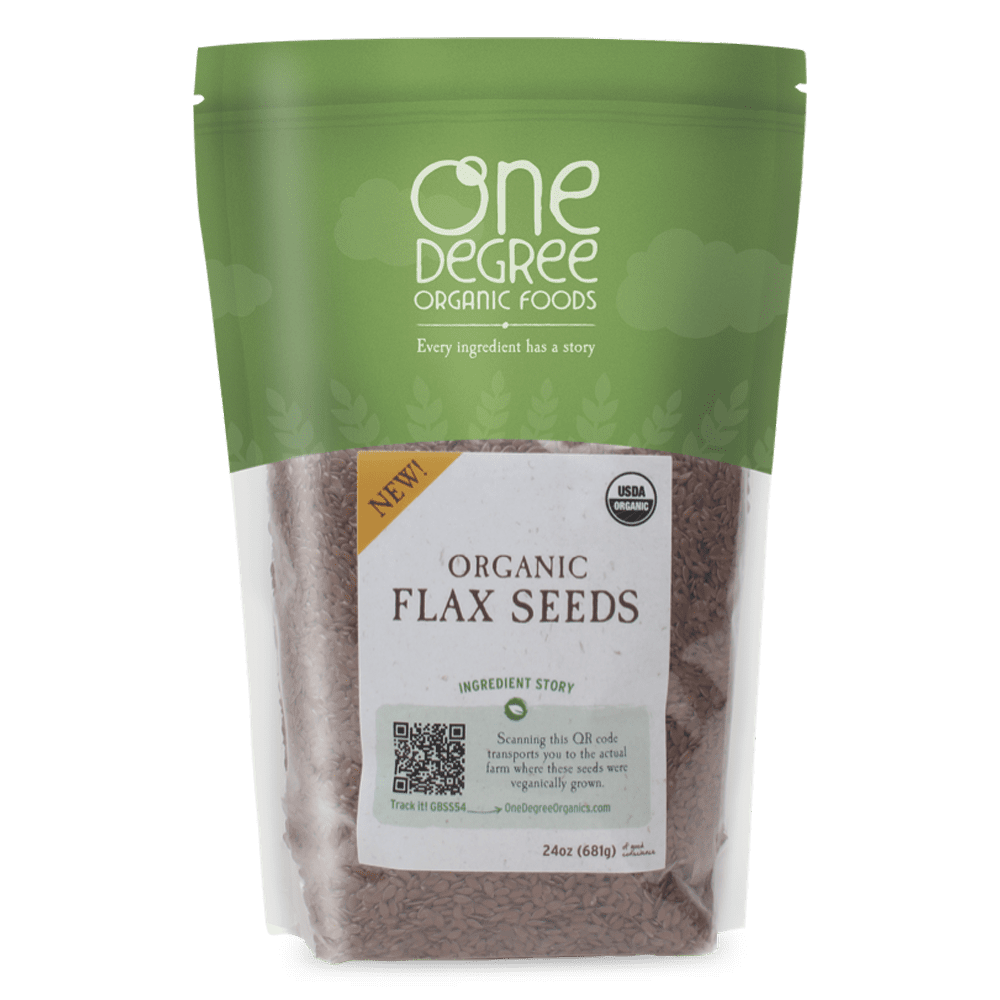Sunflower Oil
Petroagro
Petroagro is a company built on that most relentless of natural forces, the power of a young man’s dream.
Roberto Coronel was just 24 when he established a seed distribution business in Carmen de Areco, a town two hours west of Buenos Aires. As the seed trade prospered, Roberto began planting his own seeds, focusing on speciality crops such as a pure variety of high-oleic sunflowers that has attracted the attention of many global buyers, including One Degree.
Fourteen years after the company’s founding, a seismic shock rattled the peaceful Argentine countryside, and Roberto’s thoughts once again turned to the wholesaling of seeds. It was 1996, the year Monsanto arrived in rural Argentina with tales of a new miracle seed it promised would bring great fortune and change lives. But the promises would prove hollow, and the change would not be good for the people or the land.
“Immediately I saw the consequences it would have, so I purchased a piece of land where I started cultivating seeds that are truly non-GMO,” Roberto says. “I saw that GMO seeds would have certain effects in terms of increased use of chemicals, which would impact the soil negatively. Farming organically, with pure seeds, allows me to pass on land that will be healthy and fertile far into the future.”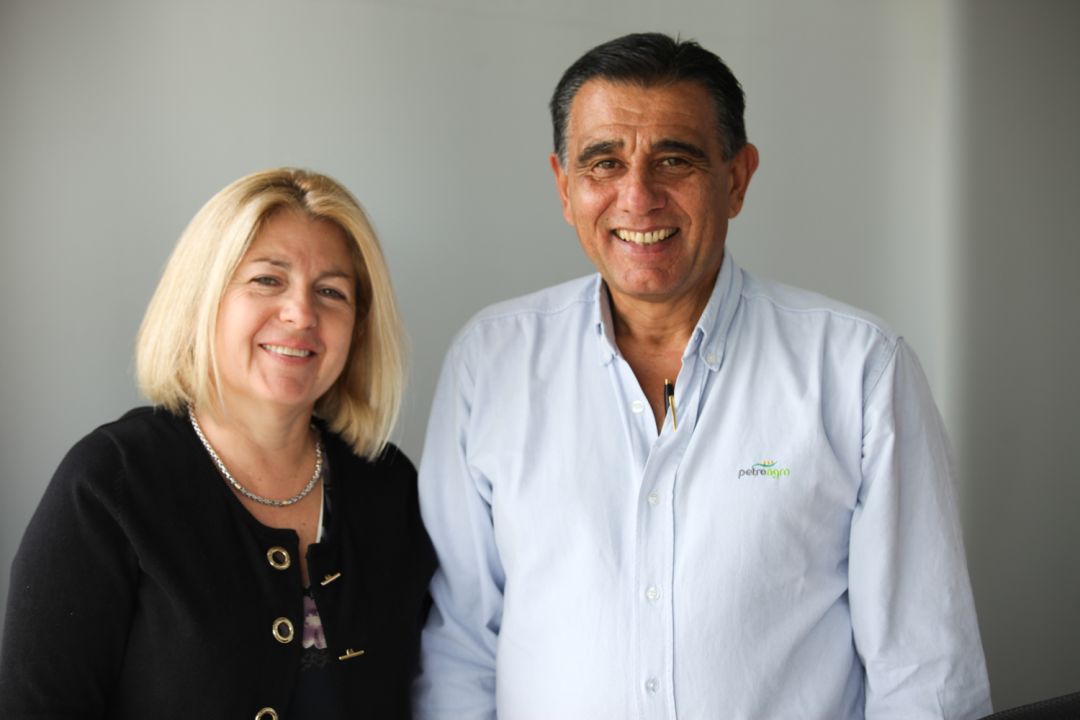
When Roberto talks of the future, he is really speaking of family. It is what motivates him to preserve the purity of seeds and the richness of his fields.
“It is very important to say that we are a family business, me and my wife Inés, my son, my daughter — she is married, my son-in-law is working with the family — we work as a family together.
“I grew up on a farm until I was 12, when I went to the city to study. It was always clear to me that my life’s work would be agriculture. My children have followed this same path. After completing their education in the city, they have returned to the family business. My son Marcos is in charge of quality control. My daughter Sofia manages human resources and my wife Inés handles legal aspects of the company. We also have a very good team of people working who understand the importance of traceability.”
Production manager Juan Manuel Quetglas agrees that the family character of Petroagro extends beyond the inner circle. “I enjoy working in a family business,” he says. “Before coming here, I worked for a multinational company, where everyone is just a number. The feeling here is completely different. I quickly embraced the shared commitment and responsibility for our goals, and was practically adopted into this family.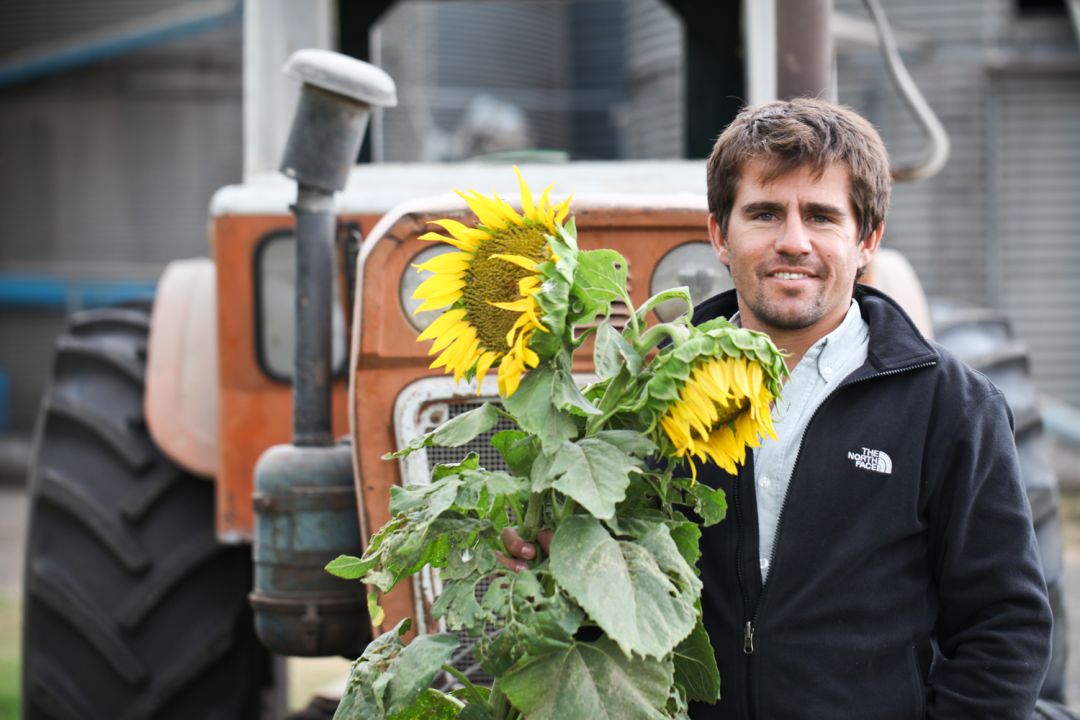
“As everywhere, we commit errors, but afterwards we forgive each other’s errors; we learn from each other so we can continue to grow. It’s a very relaxed atmosphere. I work together for instance with Marcos, the son of the owner, for one area he is the supervisor, but also he reports directly to me. He at the same time is my friend. This all can be combined together; we travel together, go to trade shows and we understand each other very well.
“I have known Roberto the owner for a long time. I’ve been in the business 20 years, and have known him for 18 years, long before I started at the company. It was my choice to work here; I selected it. Coming here and seeing the organic farming and organic practices was something that motivated me and helped me to keep going.
“My background is that I am an agricultural engineer and a designer of systems. Organic farming requires lots of systems, and they are not creating themselves; they need to be designed and managed.
“The first step in our organic process is the selection of seeds that are clean, free of GMOs, and can also be adapted to our ecological system. To keep the sustainability of the soil we use rotation, and rotation plays two main two roles. The first is to keep weeds out that will compete with the crop. The second part is the tilling of the soil. In Argentina conventional farms usually seed directly without tilling, but what we do is after the crop has been harvested we till whatever is left into the soil again to allow it to gain nitrogen, hydrogen and carbon. Another thing we do to maintain sustainability in the soil is we use cover crops in the rotation between summer and winter crops.”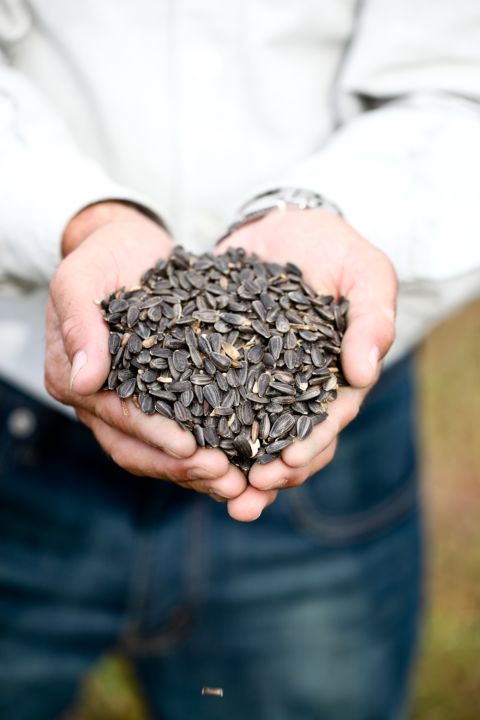
Upon harvest, Petroagro’s organic sunflowers are destined to be processed into either seeds or oil. The company’s oil presses have the capacity to handle 2.4 tons of plants per hour. The higholeic variety grown by Petroagro ensures that the final product will be rich in the kind of monounsaturated fats that have been shown to raise high-density lipoprotein (HDL) cholesterol, the so-called “good” cholesterol, when consumed regularly.
“We break down the seeds and prepare it for the oil press, then we slightly heat the seeds so they release the oil much easier,” says Juan. “Then we press the oil. The oil press is a screw pressing the matter to release the oil. For sunflowers we do a double press to make sure all the oil is released.”
From planting to processing, the chain of quality control draws its strength from one indispensable link: traceability. “The traceability is one of the main critical issues for us that allows us to secure the quality of our crops,” Juan explains. “We have developed certain quality control points throughout the supply chain. In each control point the question will be asked if it meets the quality or not. It’s a yes or no question. If the crop does not meet the quality needed, it is discharged and not used as organic any more. This line of quality control points gives us the possibility to trace back from the container that we sold throughout our processing steps to the field the crop came from. Petroagro is sustainable agriculture in its commitment, its reliability, and its traceability.”
In the case of this close-knit business, traceability is not simply an empowering technological tool, but also an invitation to join the whole company family as they go about their daily work; to meet Mom in the office, Juan at the plant, and Marcos out in the field, where like his father before him, he dreams of the seasons to come.
“I love harvest time the most,” he reflects. “After the long months of fighting the weather, difficulties in the field, the moment is there to gather the crops, the final moment. There is an atmosphere of hard work, but also it’s a celebration. It’s something very difficult to explain; it just needs to be lived.”
— Charlie Dodge
